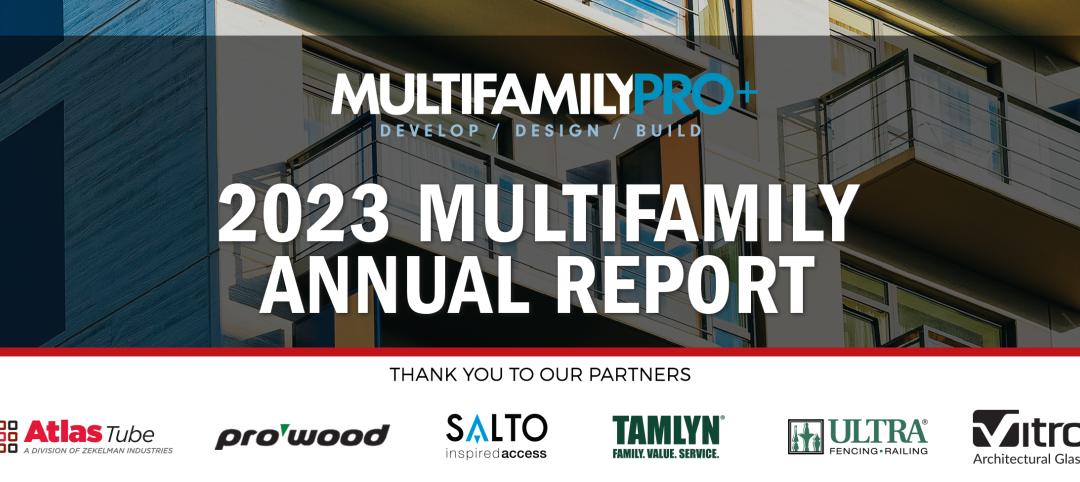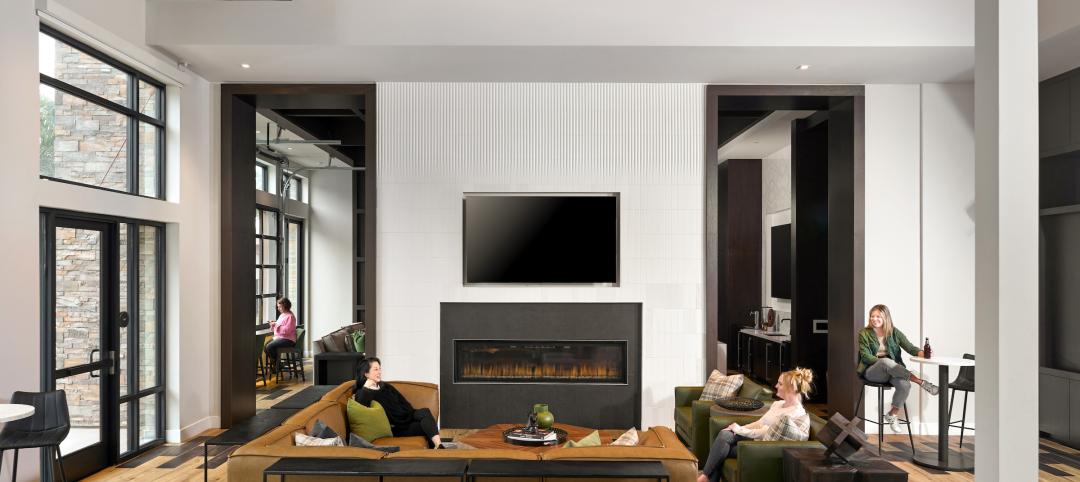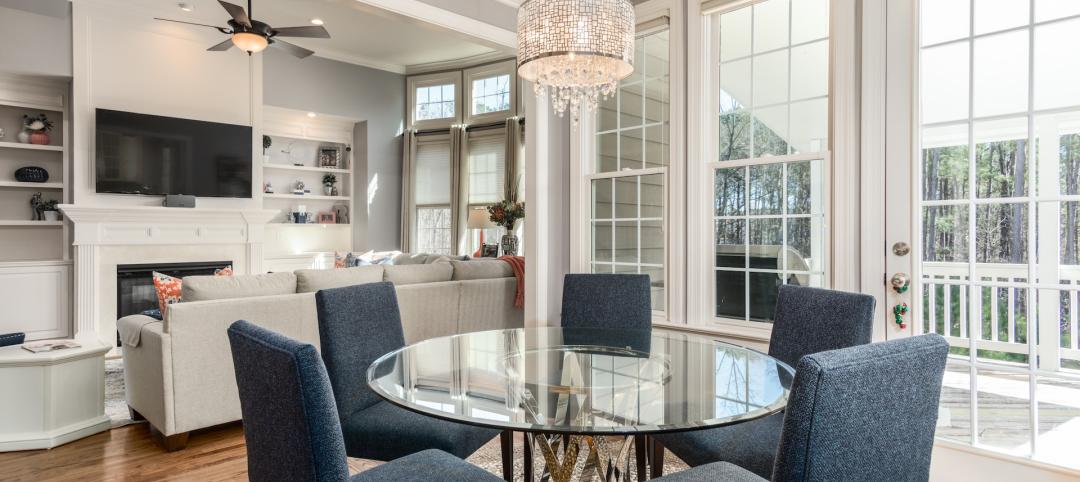WASHINGTON, D.C.--(ENEWSPF)--November 30, 2010. During a live online chat at the White House earlier today, U.S. Energy Secretary Steven Chu announced that 24 projects are receiving a total of $21 million in technical assistance to dramatically reduce the energy used in their commercial buildings. This initiative, supported with funding from the American Recovery and Reinvestment Act, will connect commercial building owners and operators with multidisciplinary teams including researchers at DOE's National Laboratories and private sector building experts. The teams will design, construct, measure, and test low-energy building plans, and will help accelerate the deployment of cost-effective energy-saving measures in commercial buildings across the United States.
"These Recovery Act projects are bringing together experts from our National Laboratories and the private sector to help businesses and organizations reduce the energy they use in their facilities, saving them money on their energy bills and making them more competitive economically," said Secretary Chu. "This initiative will also demonstrate to other commercial building operators that cost-effective, energy-efficient technologies exist today that will help lower the operating and energy costs of their buildings."
Through DOE's Commercial Building Partnerships, teams comprised of private sector technical experts and personnel from National Laboratories will help guide projects to achieve 30 percent measured energy savings in existing buildings and 50 percent energy savings in new construction projects. About half of the two dozen projects focus on energy efficiency upgrades for existing buildings. The three-year projects will provide comprehensive business and technical case studies for broad publication, including actual energy performance data from the completed projects, to help spur wider adoption of energy-efficient building practices across the industry.
The projects are funded with a public/private cost-sharing agreement, where the building owners and operators contribute at least 20 percent. Building owners and operators do not receive direct funding through the project, but instead get access to state-of-the-art technical guidance to implement energy efficiency technologies throughout the design, construction, and evaluation phases of their building and retrofit projects. This technical expertise includes energy modeling and energy performance verification by laboratory researchers and private sector experts.
The selected building owners and operators benefit by learning about measures they can apply across their extensive building portfolios. The use of private sector consultants and National Laboratory experts helps ensure that the energy efficiency measures and lessons learned in the projects will be quickly adopted by the marketplace.
Three DOE National Laboratories-Lawrence Berkeley National Laboratory (LBNL), the National Renewable Energy Laboratory (NREL), and the Pacific Northwest National Laboratory (PNNL)-will manage the effort and provide technical assistance for the selected projects. The aggressive energy efficiency design goals for each project include reasonable returns on investment and must meet other business criteria established in collaboration with the partners.
Each project will receive technical assistance valued at between $200,000 and $1.2 million, depending on the scope and nature of the plan. The following is a list of the selected projects:
* Cascadia Center for Sustainable Design and Construction; The Bullitt Foundation; Seattle, Washington
* Center for Alternative, Renewable Energy, Technology and Training; Clark Atlanta University; Atlanta, Georgia
* The College of Architecture + Planning at the University of Utah; Salt Lake City, Utah
* The Defense Commissary Agency; Lackland Air Force Base; San Antonio, Texas
* Grand Valley State University; Allendale, Michigan
* Hines; Somerset, New Jersey
* The Home Depot; Rocklin, California
* Living City Block; Denver, Colorado
* The LOOP at the University of California; Mesa Lane Partners; Santa Barbara, California
* Long Beach Gas and Oil; Long Beach, California
* Massachusetts Institute of Technology; Cambridge, Massachusetts
* Oregon Built Environment & Sustainable Technologies Center; Portland, Oregon
* Shy Brothers Farm; Westport, Massachusetts
* Sierra Nevada Job Corps; Reno, Nevada
* Smart Grid Development; North Kingstown, Rhode Island
* Twentieth Century Fox Film Corporation; Los Angeles, California
* University of California Merced; Merced, California
* University of South Carolina; Columbia, South Carolina
* U.S. Army; Fort Bragg, North Carolina
* U.S. General Services Administration; Portsmouth, New Hampshire
* U.S. General Services Administration; Region 9 locations
* U.S. General Services Administration; San Francisco
* Walmart; two locations to be determined
During the selection process, each building owner or operator submitted plans for designing a new building or upgrading existing buildings and committed to working with National Laboratories and technical experts. Project selection criteria included the likelihood of achieving significant energy savings, the probability of success, widespread deployment potential, contribution to a diverse DOE portfolio of energy-saving solutions, and the organizations' commitment to improving energy efficiency.
Learn more about Commercial Building Partnerships and other projects that are part of DOE's Building Technologies Program.
Related Stories
MFPRO+ Special Reports | Oct 27, 2023
Download the 2023 Multifamily Annual Report
Welcome to Building Design+Construction and Multifamily Pro+’s first Multifamily Annual Report. This 76-page special report is our first-ever “state of the state” update on the $110 billion multifamily housing construction sector.
Giants 400 | Oct 23, 2023
Top 190 Multifamily Architecture Firms for 2023
Humphreys and Partners, Gensler, Solomon Cordwell Buenz, Niles Bolton Associates, and AO top the ranking of the nation's largest multifamily housing sector architecture and architecture/engineering (AE) firms for 2023, as reported in Building Design+Construction's 2023 Giants 400 Report. Note: This ranking factors revenue for all multifamily buildings work, including apartments, condominiums, student housing facilities, and senior living facilities.
Affordable Housing | Oct 20, 2023
Cracking the code of affordable housing
Perkins Eastman's affordable housing projects show how designers can help to advance the conversation of affordable housing.
Senior Living Design | Oct 19, 2023
Senior living construction poised for steady recovery
Senior housing demand, as measured by the change in occupied units, continued to outpace new supply in the third quarter, according to NIC MAP Vision. It was the ninth consecutive quarter of growth with a net absorption gain. On the supply side, construction starts continued to be limited compared with pre-pandemic levels.
Warehouses | Oct 19, 2023
JLL report outlines 'tremendous potential' for multi-story warehouses
A new category of buildings, multi-story warehouses, is beginning to take hold in the U.S. and their potential is strong. A handful of such facilities, also called “urban logistics buildings” have been built over the past five years, notes a new report by JLL.
Building Materials | Oct 19, 2023
New white papers offer best choices in drywall, flooring, and insulation for embodied carbon and health impacts
“Embodied Carbon and Material Health in Insulation” and “Embodied Carbon and Material Health in Gypsum Drywall and Flooring,” by architecture and design firm Perkins&Will in partnership with the Healthy Building Network, advise on how to select the best low-carbon products with the least impact on human health.
Contractors | Oct 19, 2023
Crane Index indicates slowing private-sector construction
Private-sector construction in major North American cities is slowing, according to the latest RLB Crane Index. The number of tower cranes in use declined 10% since the first quarter of 2023. The index, compiled by consulting firm Rider Levett Bucknall (RLB), found that only two of 14 cities—Boston and Toronto—saw increased crane counts.
Office Buildings | Oct 19, 2023
Proportion of workforce based at home drops to lowest level since pandemic began
The proportion of the U.S. workforce working remotely has dropped considerably since the start of the Covid 19 pandemic, but office vacancy rates continue to rise. Fewer than 26% of households have someone who worked remotely at least one day a week, down sharply from 39% in early 2021, according to the latest Census Bureau Household Pulse Surveys.
Luxury Residential | Oct 18, 2023
One Chicago wins 2023 International Architecture Award
One Chicago, a two-tower luxury residential and mixed-use complex completed last year, has won the 2023 International Architecture Award. The project was led by JDL Development and designed in partnership between architecture firms Goettsch Partners and Hartshorne Plunkard Architecture.
Giants 400 | Oct 17, 2023
Top 130 Sports Facility Architecture Firms for 2023
Populous, Gensler, HOK, and HKS head BD+C's ranking of the nation's largest sports facility architecture and architecture/engineering (AE) firms for 2023, as reported in Building Design+Construction's 2023 Giants 400 Report.
















